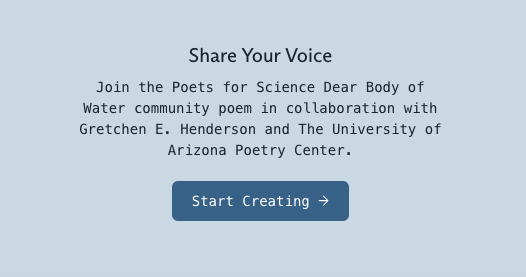“Water is the biggest need.”
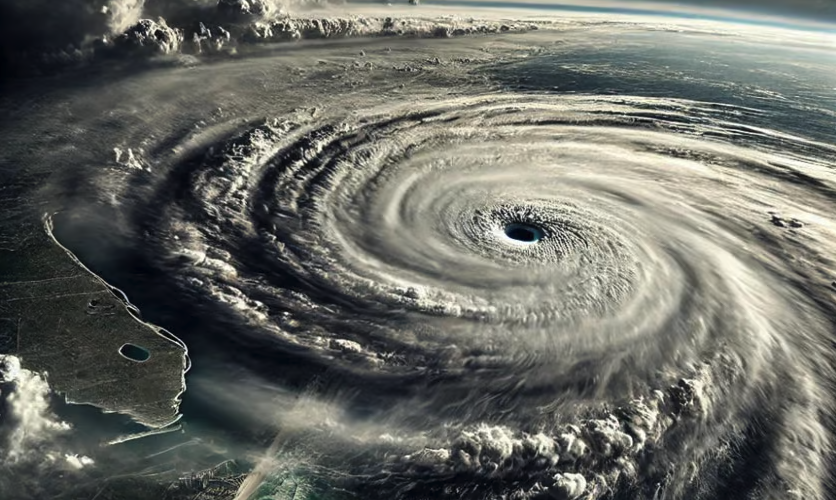
In the days since Hurricane Helene swept the Southeast, news reports keep tallying losses. As of this writing, more than 200 people and counting have died across six states through a storm that has been called “one of the deadliest hurricanes of the modern era.” The wake of destruction will continue to erode livelihoods over weeks and months, even years to come. “Recovery,” as a word, seems muddy as stormwater, since affected regions will not return to what they were before. After digging out debris of ruined homes and schools and businesses, and recovering bodies, those who survive will face increased vulnerability as superstorms have become increasingly common, transforming the region in ways that may still seem impossible to fathom.
All those lives who were lost were dear bodies of water.
The human body is mostly water. The planet is mostly water.
We are all bodies of water.
How do we address this collective loss? How do we find a way forward?
Dear Boone Creek…
Dear Swannanoa River…
Dear Lake Lure...
The paradox of the storm surge that inundated the American Southeast—where record rainfall washed away roads and even whole towns—was that the swell of water was followed by a complete lack of water. From Blue Ridge Public Radio in North Carolina, commentator Gerard Albert III reported of Asheville: “As the water is receding, … the biggest need … is water. There is no running water.” Showers; flushing toilets; drinking water. “Water is the biggest need.”
I write this missive en route to the Blue Ridge Mountains, out of Helene’s harm in Virginia, as a group of interdisciplinary practitioners will soon arrive for my workshop there on “Writing the Landscape.” They are coming from India and Canada and around the United States, including North Carolina, if conditions will allow. With only a sliver of internet, a participant from Boone wrote that she still plans to attend, but her driveway washed away, the university where she works is indefinitely closed, there is barely communication with the outside world, and “we are in recovery mode without power, cell service, internet, or water … I have never seen this much devastation except on the news. Now we are the news.”

At this devastating moment, the Dear Body of Water project invites you, Dear Readers, to take a moment to listen and acknowledge all these bodies of water affected by Hurricane Helene and by ongoing water challenges around the world. Reflect on our local and global interrelationships with water. Many bodies of water—not only human but also animal and botanical—have been damaged or lost from what has come to be called the Brown Ocean Effect. Hurricane Helene is only one recent expression of water. In recent months off the Southeast coast, oceans reached “feverish” temperatures, bleaching corals and threatening other sea life. In recent weeks, Storm Boris flooded many countries in Central Europe including Poland and the Czech Republic, which is not to neglect hundreds of thousands of vulnerable bodies of water—humans and more—in war-torn Ukraine, Palestine, Israel, Lebanon, and other regions under fire, where undercurrents of water flow through dire straits.
A year ago this month of October, as conflict erupted into war in the Middle East, the New York Times reported: “In southern Gaza, finding water is now “the hardest thing.” That news was not entirely new; in 2017, the United Nation’s children’s agency UNICEF reported that the water crisis in Gaza had been building for decades and was already “beyond dire” with catastrophic levels of water “unfit for human consumption.” Water-related issues seep into the core of human existence, coursing into attention at different timescales across places and backgrounds, seemingly elsewhere, until “we are the news.”
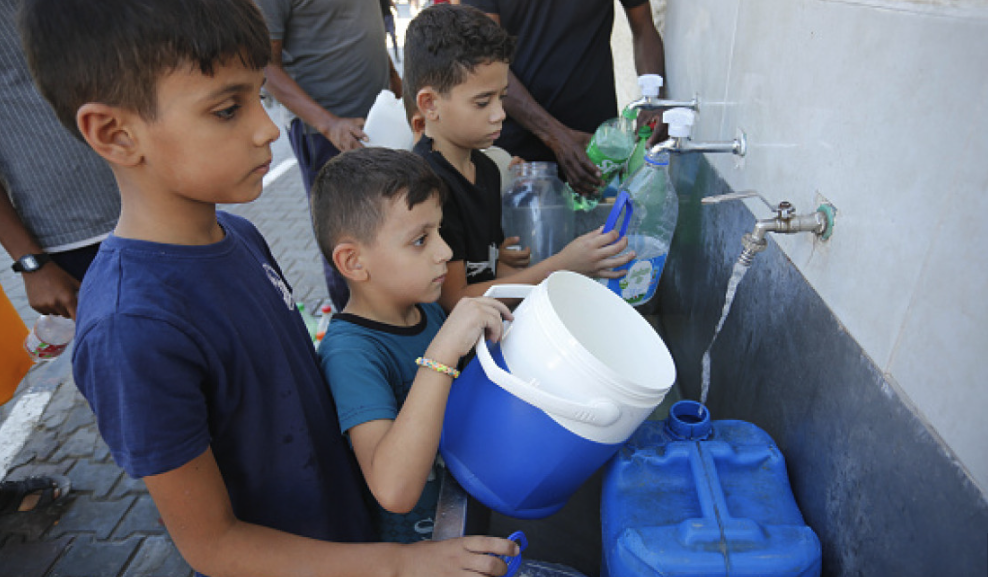
Dear Hurricane Helene…
Dear Oder River…
Dear Mediterranean Sea…
People look to the Sonoran Desert (home of the University of Arizona Poetry Center) and other deserts on the verge of megadrought as harbingers of water scarcity. But the other side of drought are floods. Climate issues are inseparable as water that we drink: a necessity for humans everywhere. Any vulnerable situation—from contaminated water in Flint, Michigan, to Day Zero in Cape Town, South Africa—throw into relief the interconnected vulnerability of water for anyone, anywhere. Water seeps into our lives in quieter ways, too: from polluted watersheds that contribute to water-borne diseases, to the water burden of AI and data centers, to the Great Pacific Garbage Patch. For years, there have been projections that future wars will be fought over water. In the American Southwest, “water wars” are already underway from colonizing water rights (versus rights of or for water), entangled with the “legalized oppression” of Native American nations. The future has long been now.
Dear Great Pacific Garbage Patch…
Dear Flint River…
Dear Colorado River…
Dear Waters beyond colonized names…
water is our lifeblood and can reconnect us,
if we listen and learn reciprocity.
While many human systems divide our species, water is our lifeblood and can reconnect us, if we listen and learn reciprocity. As a living being, water flows across generations and political borders, overflowing manmade dams and humancentric understandings of land. Water teaches ecological relation by example; conditions of scarcity or inundation did not emerge overnight. Water has a longer lifespan than humans and holds deep molecular memory. A hurricane like Helene—or Maria or Katrina—has been building for years, in a sense, like a tidal wave that starts on the other side of the world but only gets attention through human impact. Diminishing snowpacks relate to increasing forest fires, melting glaciers and rising sea levels: all shape the living body of water that is our planet. Our “blue marble” got its nickname by the defining feature of Earth as a body of water.
Dear Amazon…
Dear Nile…
Dear Ganges…
Around the globe, bodies of water are raising their voices. Last year, geologists registered the frequency of Earth when a massive landslide in Greenland triggered a mega-tsunami that made the planet vibrate for nine days. “We’ve never seen such a large-scale movement of water over such a long period,” Dr. Stephen Hicks of UCL told BBC News. With accelerating climate change that is warming the Arctic, such events are predicted to happen with increased magnitude and frequency. Scientific studies have long proved the climate is in crisis, but data alone has not moved human hearts.
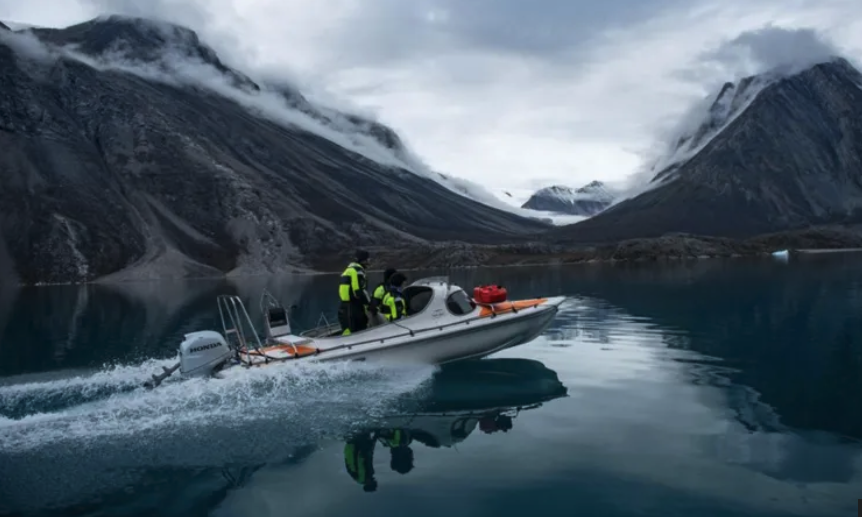
Dear Earth…
Dear Mother Earth…
Dear Body of Water is an invitation to reevaluate our relationships with water. Water is often perceived as an inert, extractable, lifeless resource: something to take rather than to give back and treat with respect and reciprocity. When bodies of water are respected as fellow living beings, as our literal lifeblood, a relationship can grow. This is not new but renewing timeworn knowledges, reintegrating Indigenous ways of knowing and (bio)diverse senses of kinship with a more-than-human world. Writing a postcard-sized love letter to a body of water may seem insignificant, a simple act, yet this gesture offers a portal to a growing project. The ongoing process involves turning away from fear toward care and repair: of each other and of all the other bodies of water around us.
When bodies of water are respected as fellow living beings,
as our literal lifeblood, a relationship can grow.
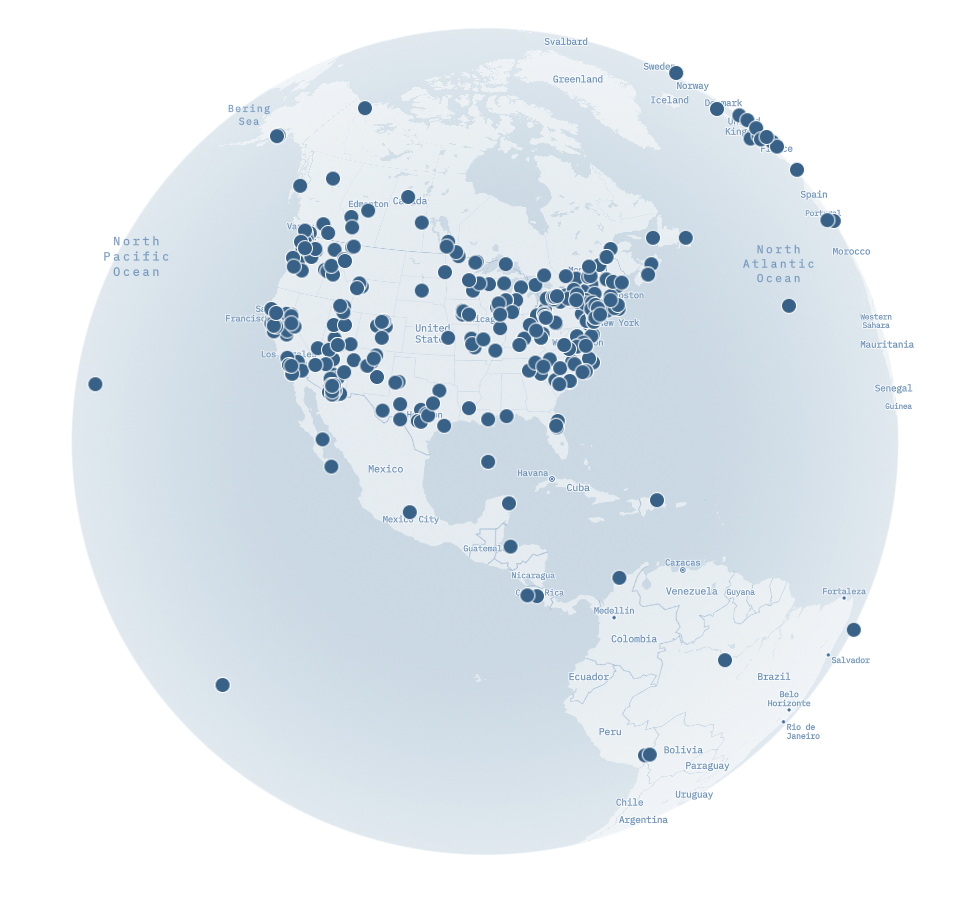
Take a moment to reflect on and address a vulnerable body of water in your midst. Read the wash of submissions (click “Grid”) that have been flowing to the Poetry Center. Pay attention to who is and is not represented, who speaks and who is silent. Share your voice; invite friends and family and even strangers; in kind, listen to and with other bodies of water. Through initiatives of “Listening with Water” and a repertoire of eco-activations, Dear Body of Water has been growing around the country, as people gather to share waterstories (through “icebreakers” and more) and to engage watersheds beyond only their own ways of knowing.
Dear Chesapiooc (Chesapeake Bay)…
Dear Patawomeke (Potomac River)…
Dear Cokongoloto (Goose Creek)…
As I write this from the colonial state of Virginia (near a spring house, whose waters feed ponds that flow to a creek to a river to a bay, which eventually joins an ocean), I am reminded that October marks a national initiative to imagine A Day without Water. For many this exercise is not hypothetical but a reality, which will last beyond a day, even for weeks to come. Already, headlines about Hurricane Helene are retreating with new news cycles (which may be inevitable amid so much conflict in the world, from global wars to national presidential elections), but the Southeast is facing a “second disaster” after the storm, since many individuals lack flood insurance and are left to wade through the destruction, as one man expressed, after “watching my life wash away.”
Dear Home…
Dear Hometown…
Dear Drinking Water…
Considering towns like Asheville and Boone and many towns in the Southeast still without drinking water (as of this writing), Hurricane Helene is hardly an isolated event. This superstorm echoes Katrina in New Orleans, other places and displacements, compounding in the public imagination. Alphabetized names for hurricanes—Helene, Katrina, Maria, Sandy, Florence—can serve as more than classifications or personifications. Fill-in-the-blank with your localized version of natural disaster—tornados or fires, earthquakes or melting permafrost, glaciers or landslides or tsunamis—give them a name, and you will find Water plays a starring or supporting role. Yet reports of water often emerge in reaction rather than pro-action, fear rather than care, isolation rather than relation.
If you were to write to Dear Hurricane Helene as a fellow living being, what would you say? Amidst grief and anger, disbelief or despair, swelling emotions may leave us inarticulate, falling back on blame or turning inward from fear about possible futures. If we re-view this super storm as an expression by an injured or hurting body of water, akin to Mother Earth, could we offer tender words of consolation and support to help and heal together? How might we treat a beloved relative or dear friend who is wounded? How might we address this vulnerable body of water from more than our limited human knowing, trying to consider the perspective of the planet?
Dear Mother…
Dear Sister…
Dear Daughter…
It would be easy to end this posting with apocalyptic forecasts, climate grief or solastalgia (that also ties into the Surgeon General’s recent warning about mental health), but any ending can double as a beginning. Each action, no matter how small—just as every drop of water counts—might accumulate to make a difference in our shared future. We are not fated to a singular outcome until we give up on becoming agents of change.
The response to Dear Body of Water has been moving, as many of you have shared your voices to grow a chorus of care, accompanied by collaborative acts of stewardship around bodies of waters in your communities. (Such “Tributaries” and “Replenishers” will be highlighted in months to come.) What restoring efforts might converge through restorying our collective waterways, as each of us cares for bodies of water in our midst? What happens if all our repairing efforts flow together in the future?
Water can be a destroyer, as with Hurricane Helene,
but also can be a healer.
Water can be a destroyer, as with Hurricane Helene, but also can be a healer. Health studies about green and blue spaces and time with nature can support replenishment, rejuvenation, and reconnection. Human bodies of water cannot heal if we stay separated from our blue natures. Without caring for our planetary lifeblood, we will set an example of how we wish to be treated: continually extracting from and being extracted by our resourcing source of life. Water Is Life. Listen: as water drips and whispers, babbles and swirls and rushes with hurricane-force winds: screaming. What is water saying? If we can’t even listen well to human stories, what other voices are we not hearing (beyond physiology alone) that might offer more than a wellspring? If you were to address a Dear Body of Water, who would you turn to and what would you say?
Dear…
Dear…
Dear…
Please take a moment to address a body of water who you love. Listen and share your voice with Dear Body of Water.
__________________
For more about how to support those who have been affected by Hurricane Helene, seek out available resources including usa.gov/hurricane-helene.
For her permission to quote her email about being personally affected by Hurricane Helene, thanks to Mary Anne Redding, Senior Curator of the Turchin Center for the Visual Arts at Appalachian State University.
Gretchen Ernster Henderson is a body of water indebted to many bodies of water: from the Pacific to Atlantic Oceans, San Francisco to Chesapeake Bays, Missouri to Charles to Santa Cruz Rivers, Icicle to Rock Creeks. Her fifth book, Life in the Tar Seeps: A Spiraling Ecology from a Dying Sea (Trinity University Press 2023), has been melting from Great Salt Lake into the public prompt of Dear Body of Water, alongside “Parched Poetics” (Storied Deserts: Reimaging Global Arid Lands), “A Melting Glossary of Water” (TSLL), intermedia works and field workshops, including “Relational Ecologies: Writing with Water.” A senior lecturer at the University of Texas at Austin (TX), Gretchen teaches widely and is also a 2024 Lucas Artist Program Fellow at Montalvo Arts Center (CA) and Artist-in-Residence at Fallingwater (PA). Her latest publication about what and who gets remembered and forgotten in history just appeared in Ploughshares as “The Missing Wreath: On JFK’s Grave.”


